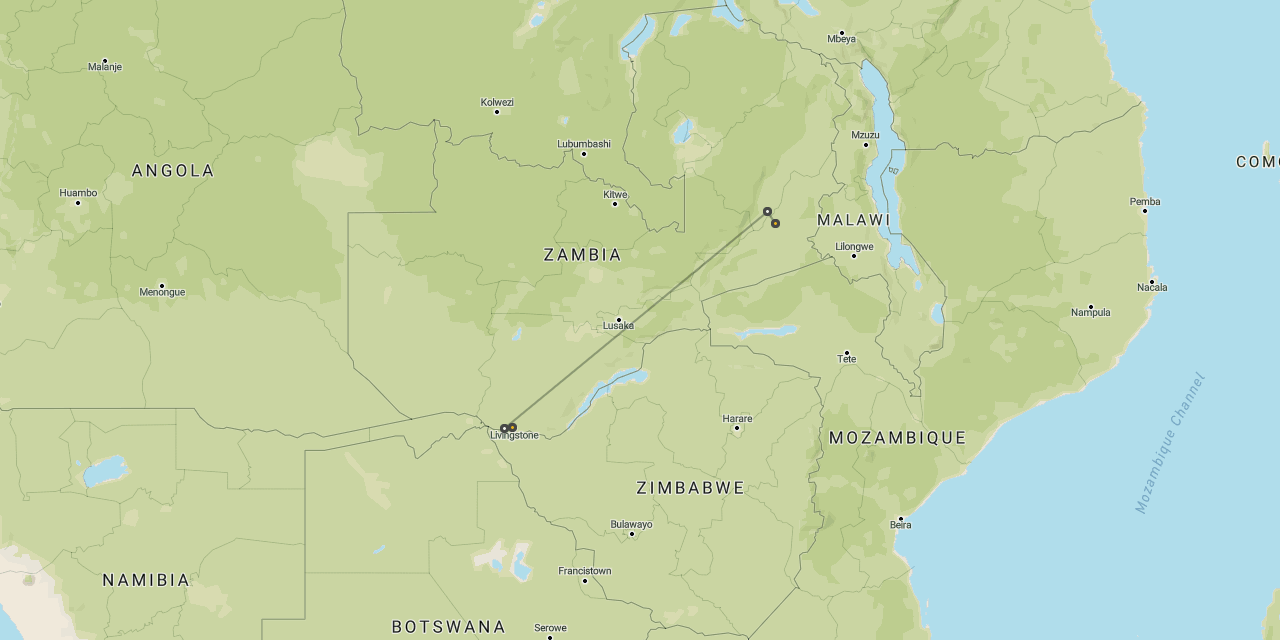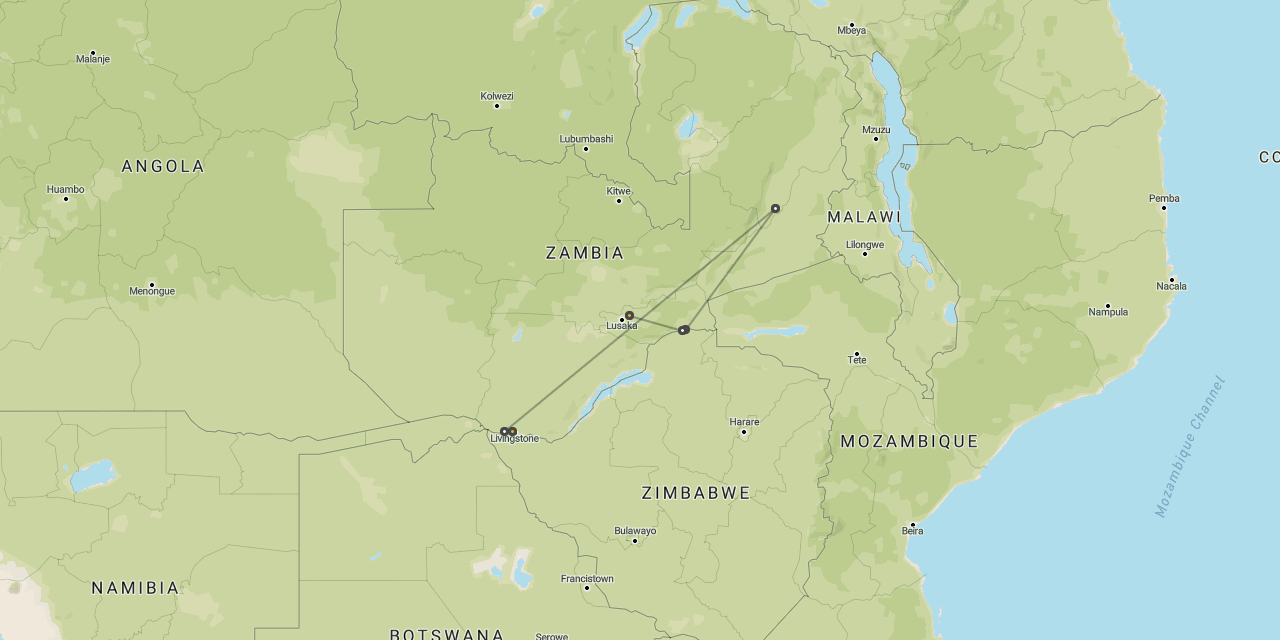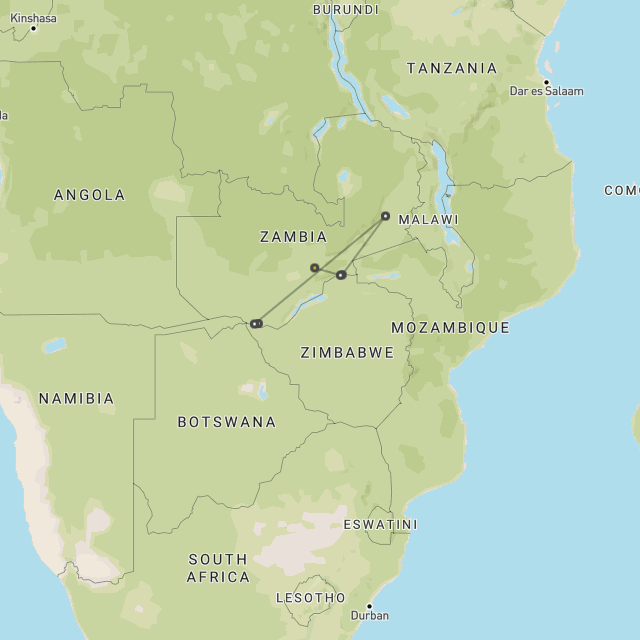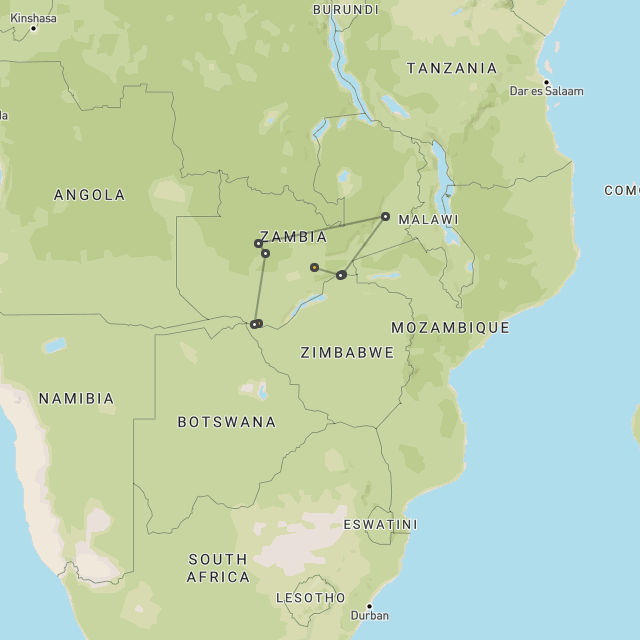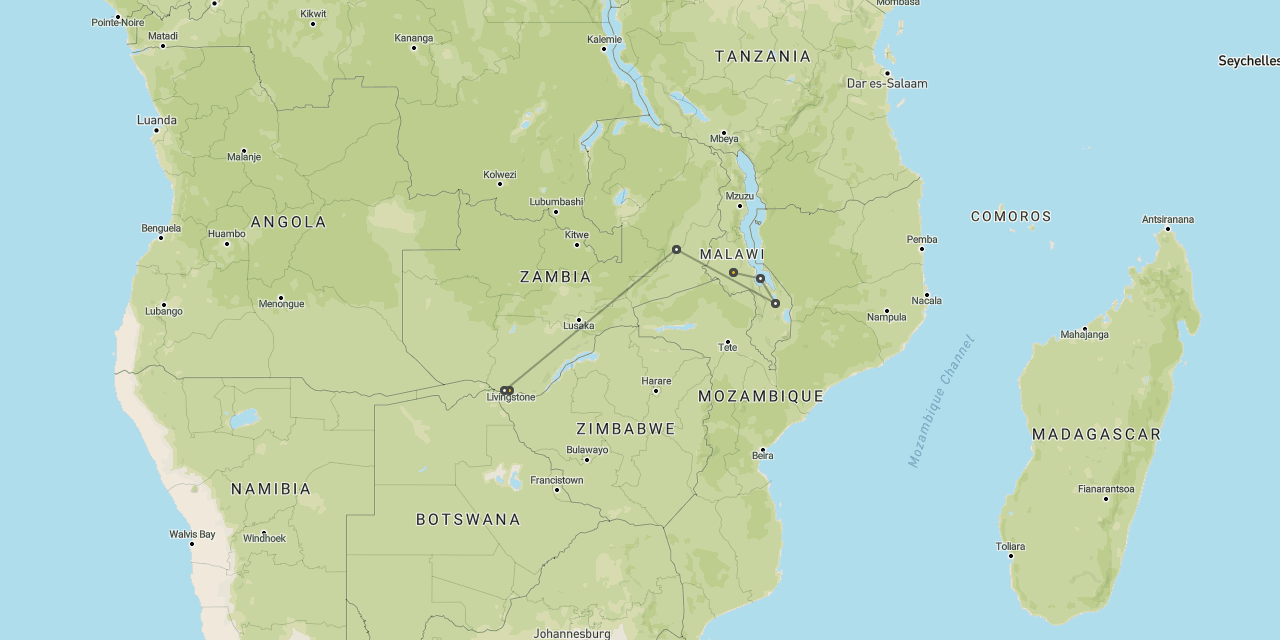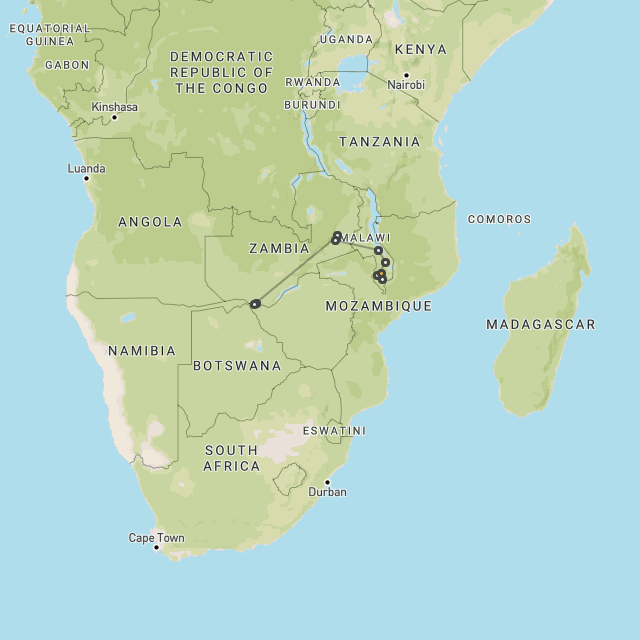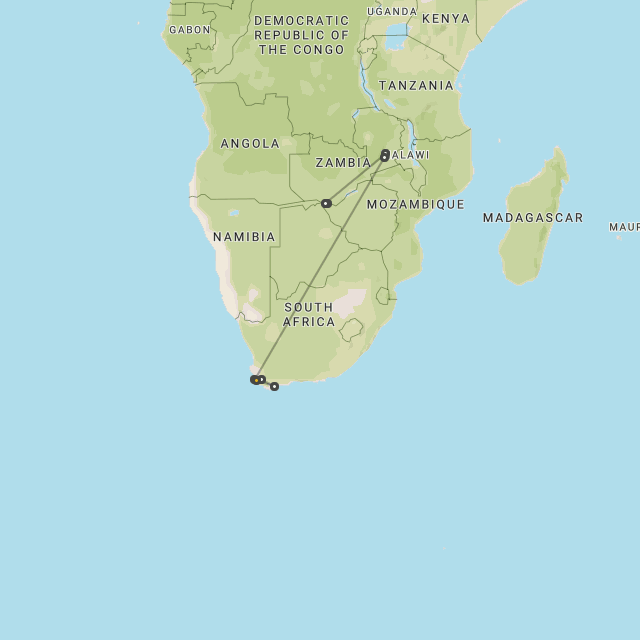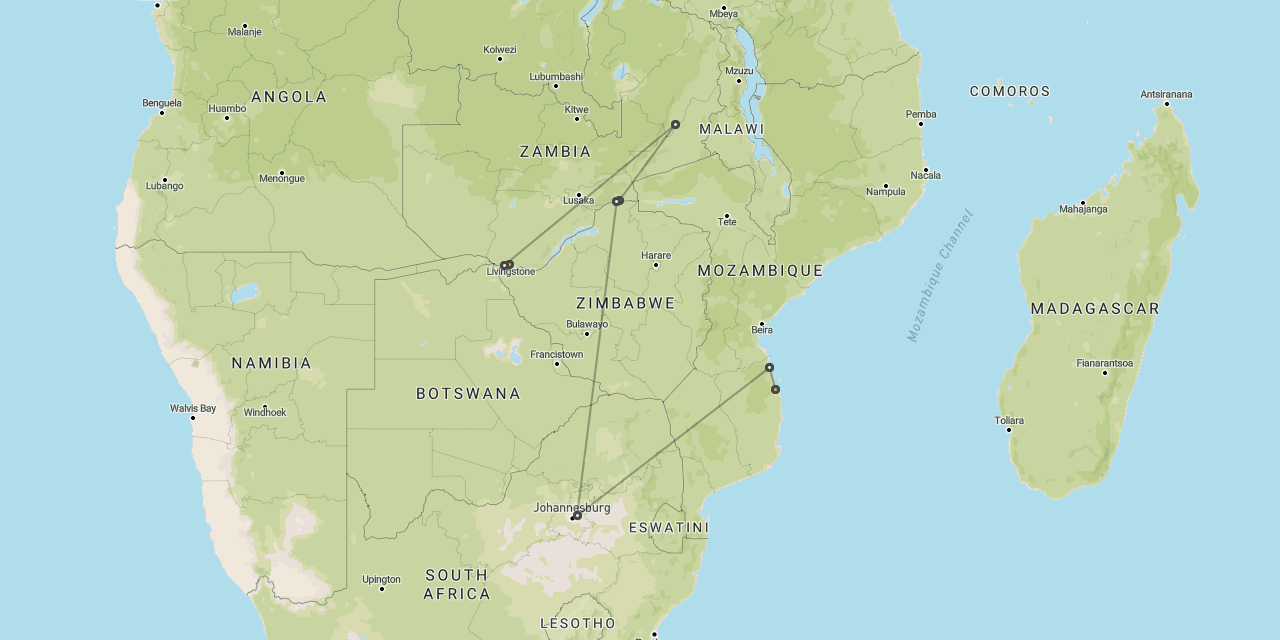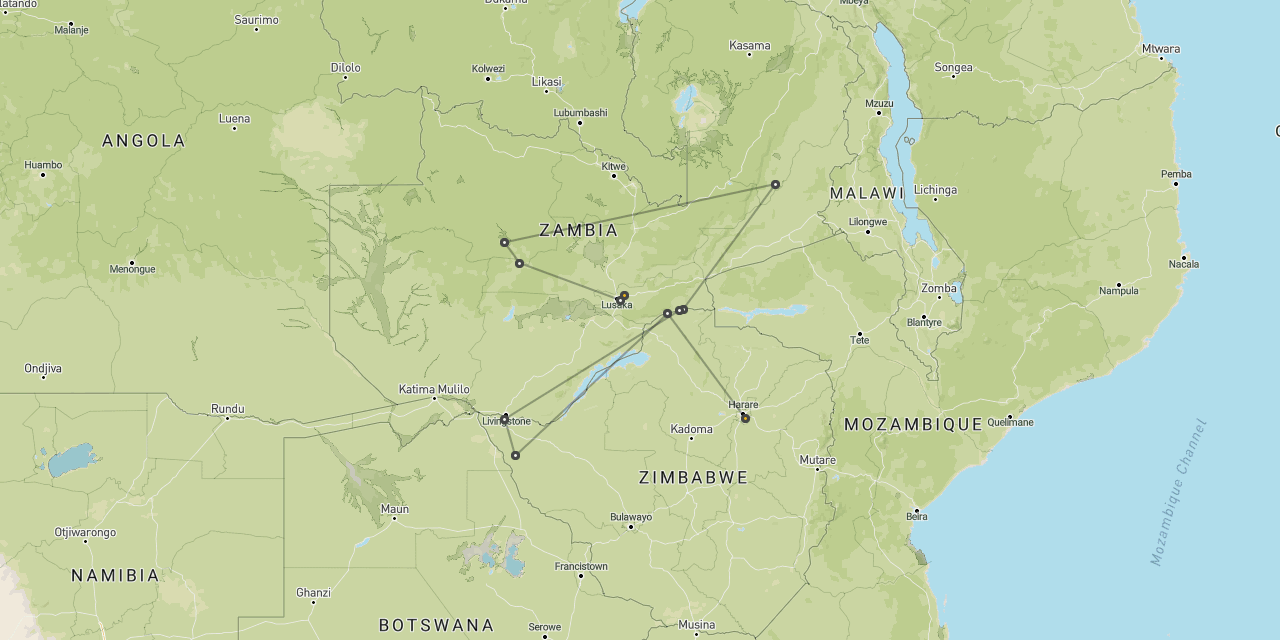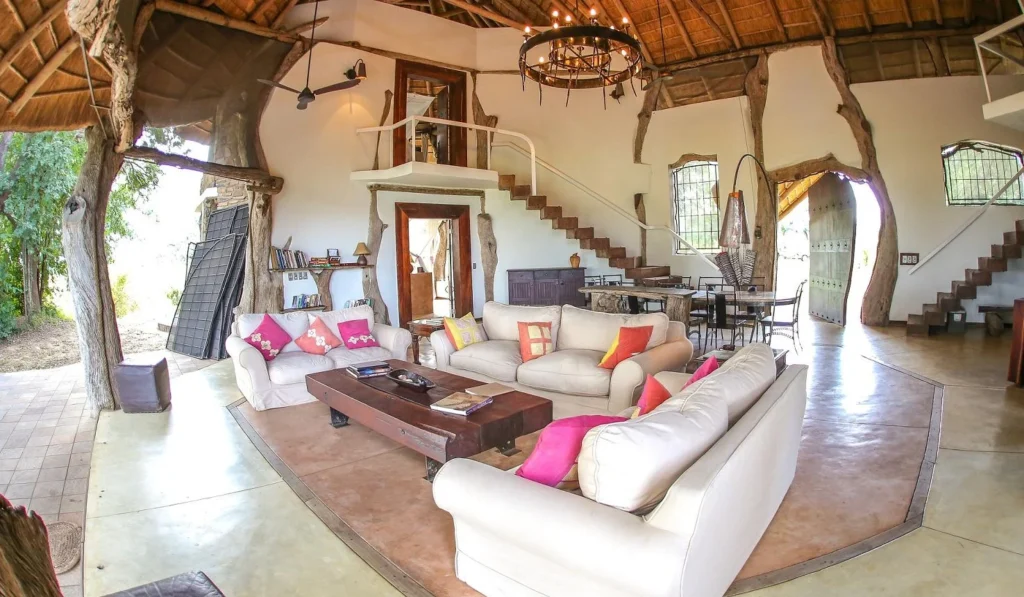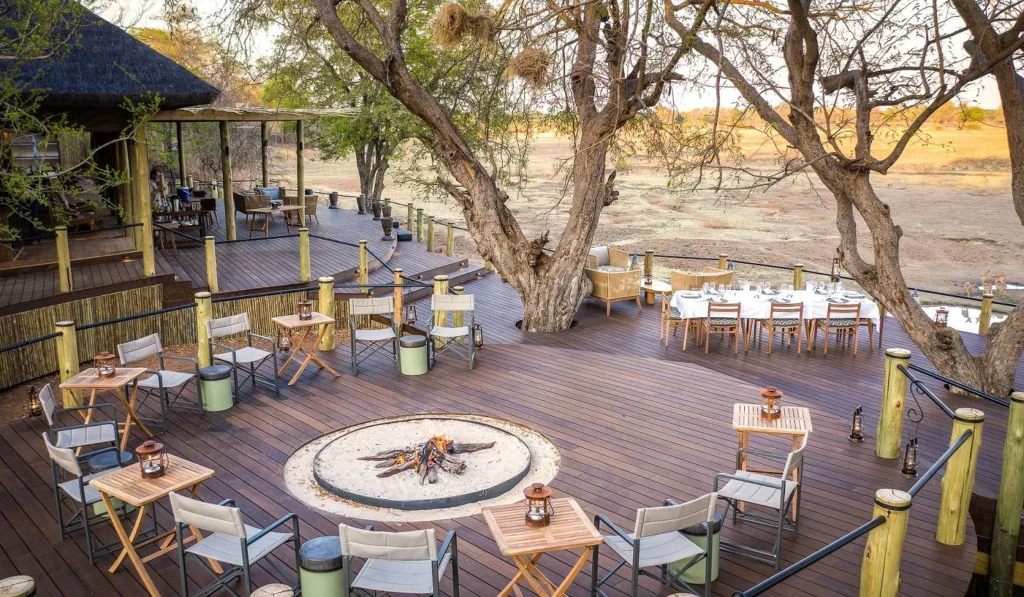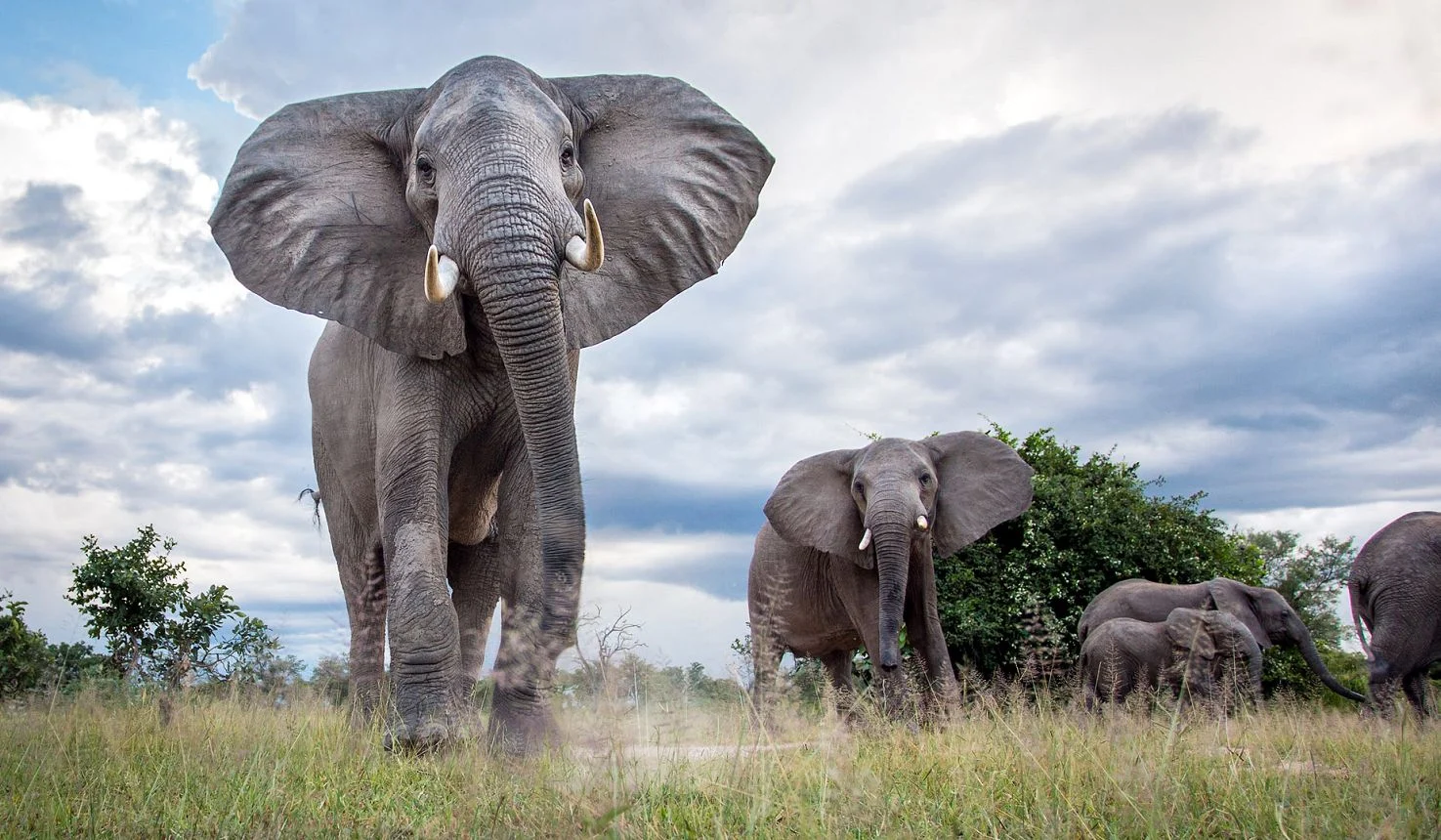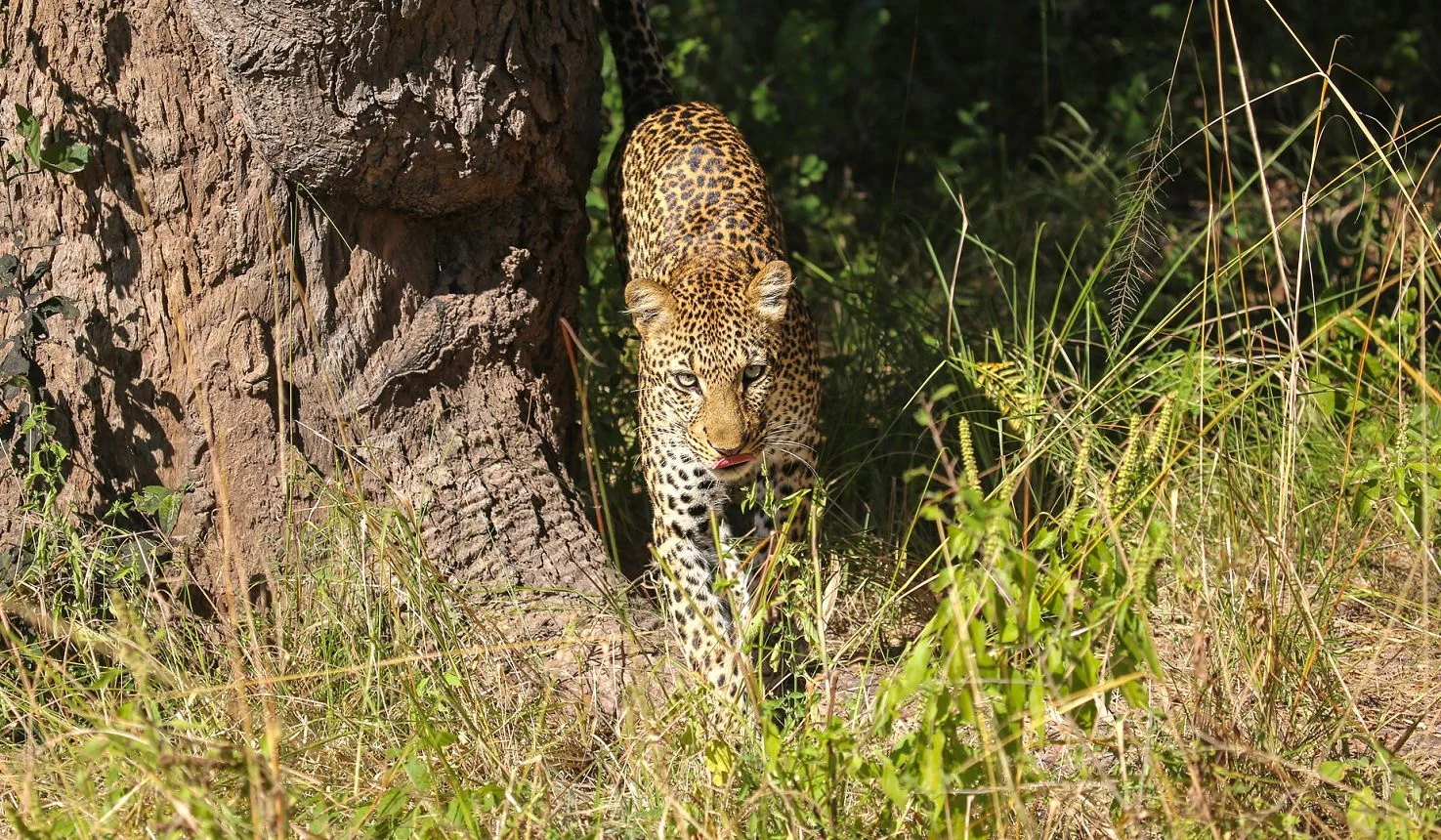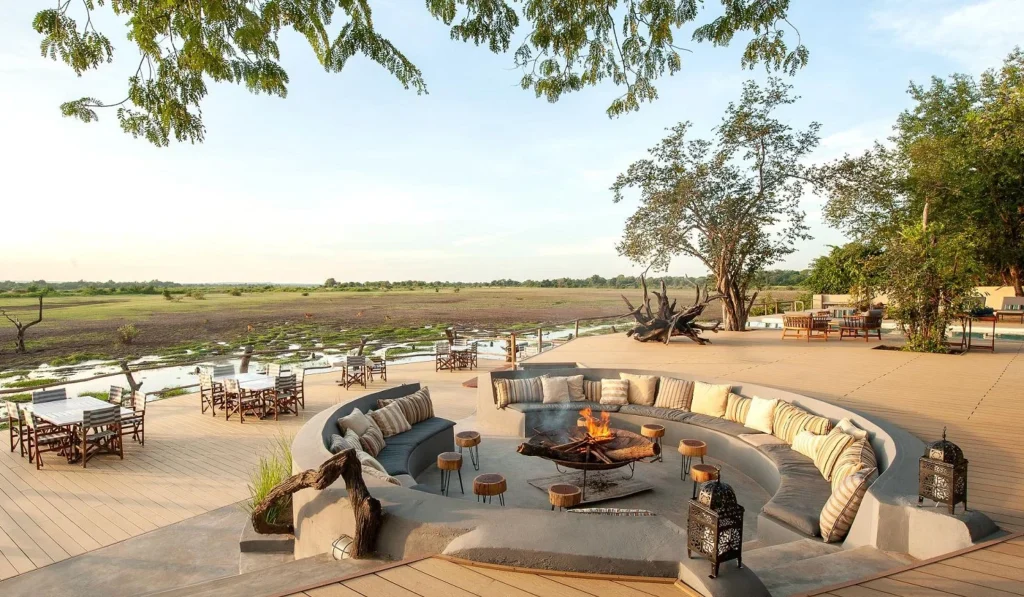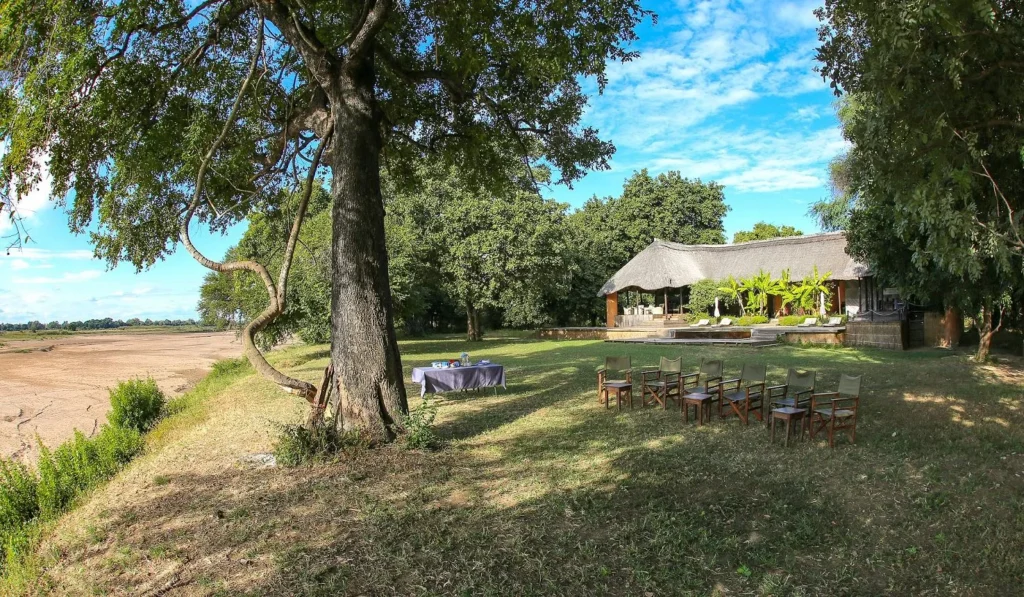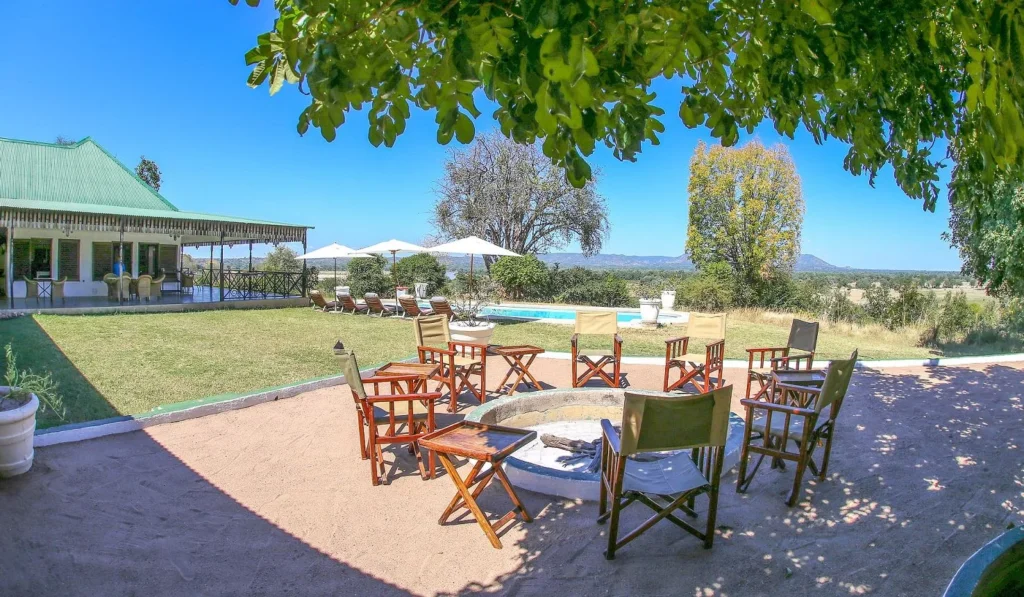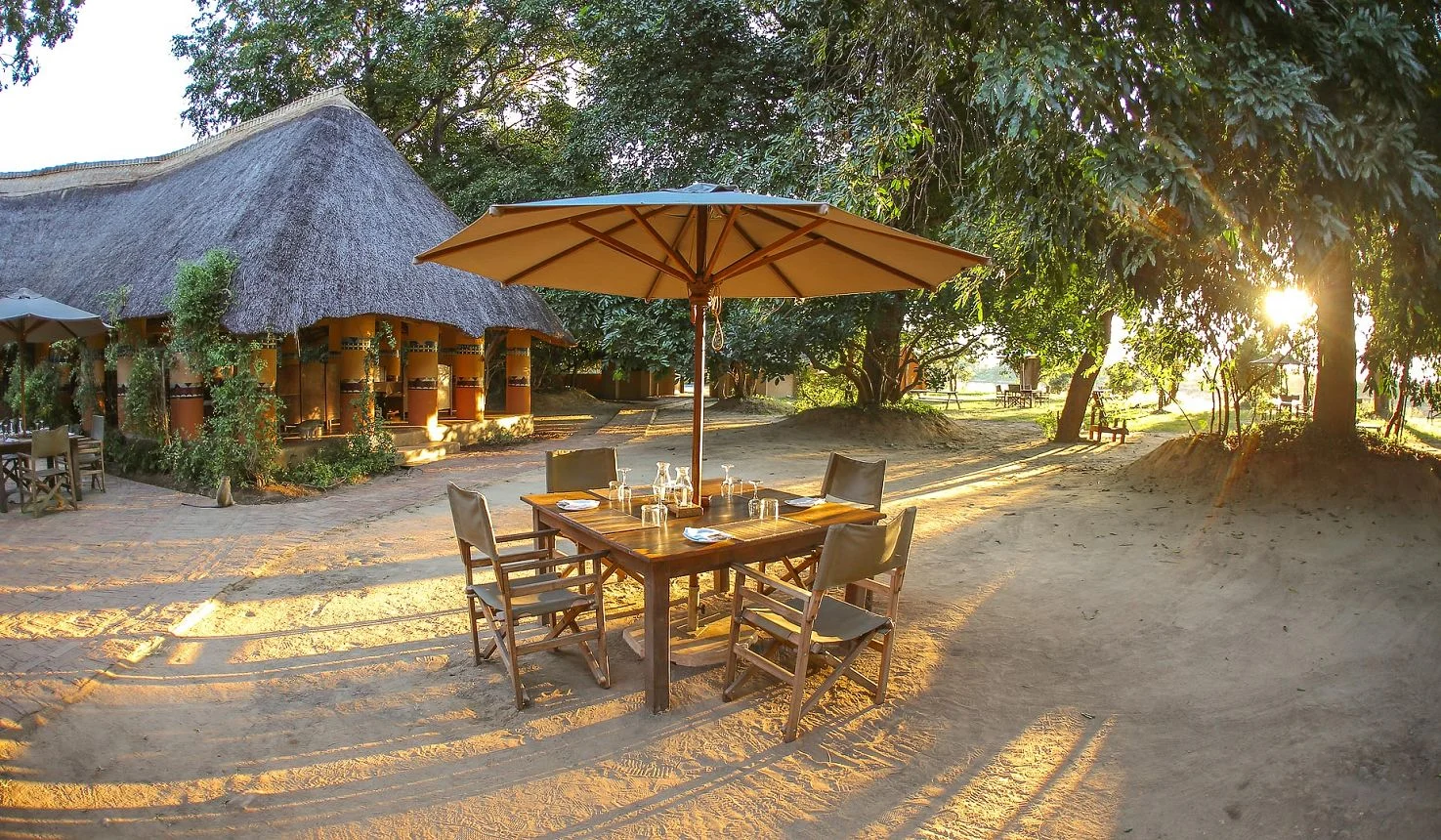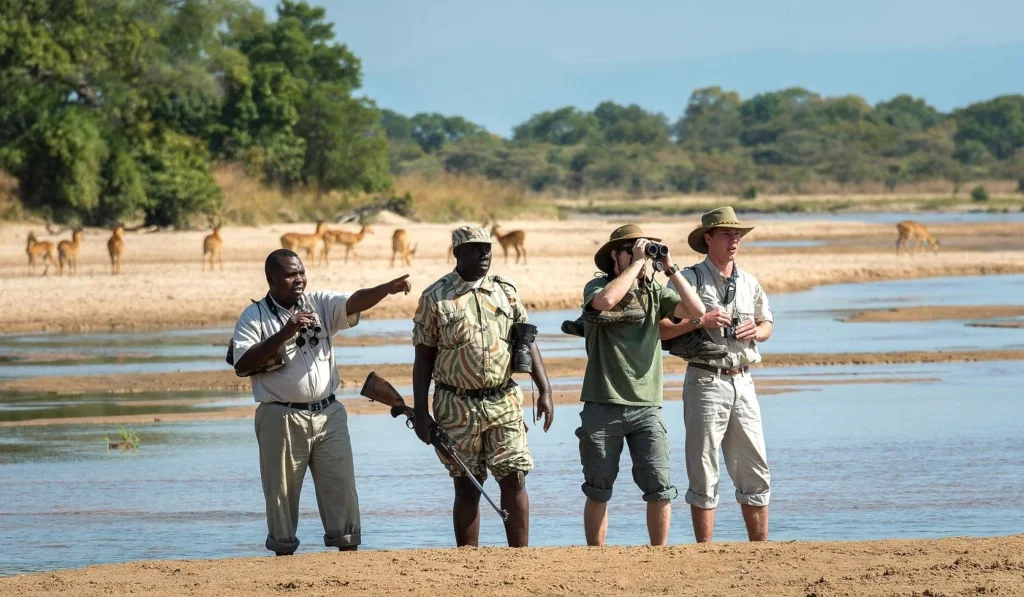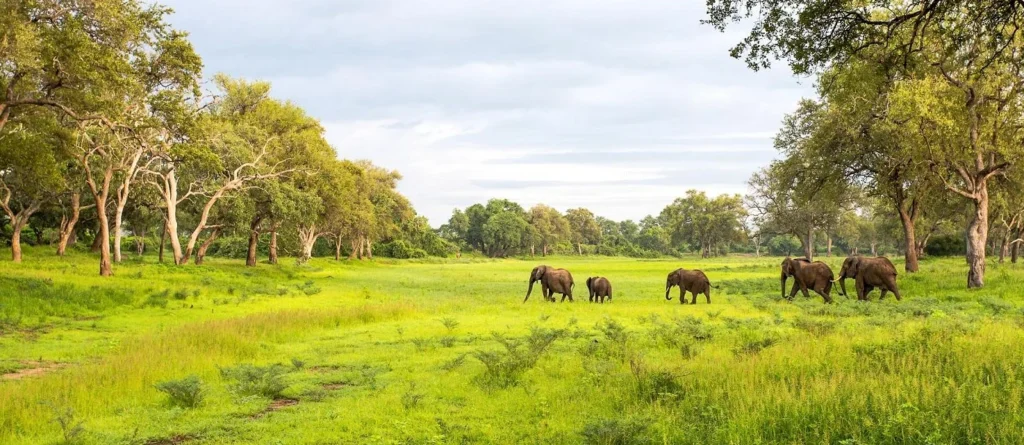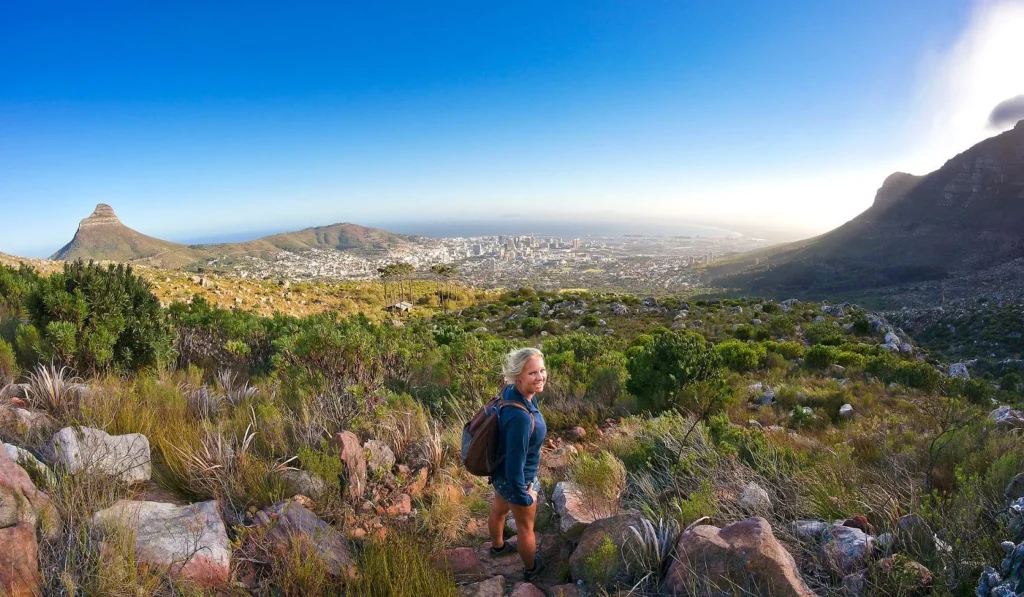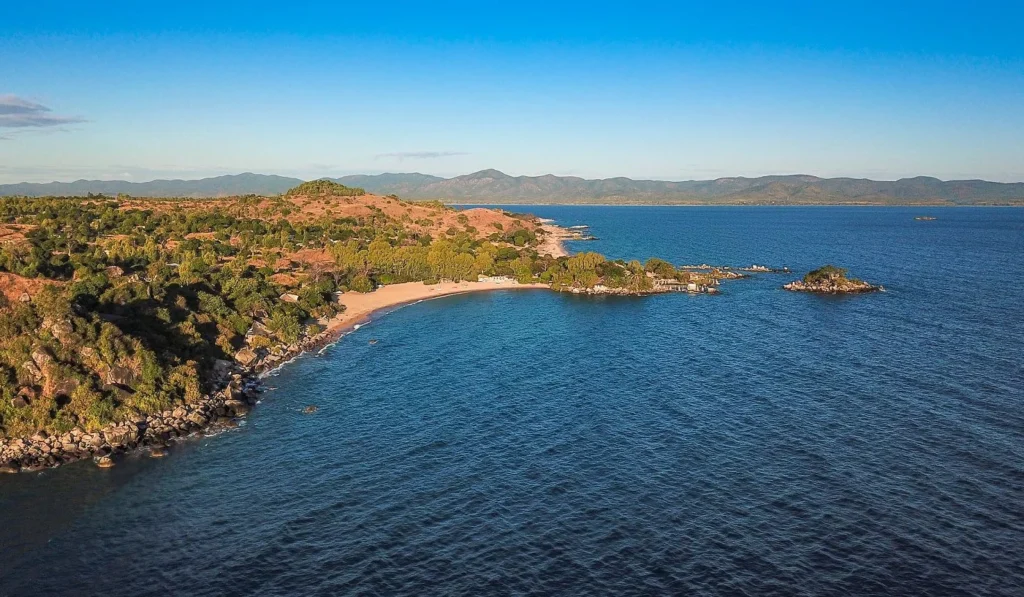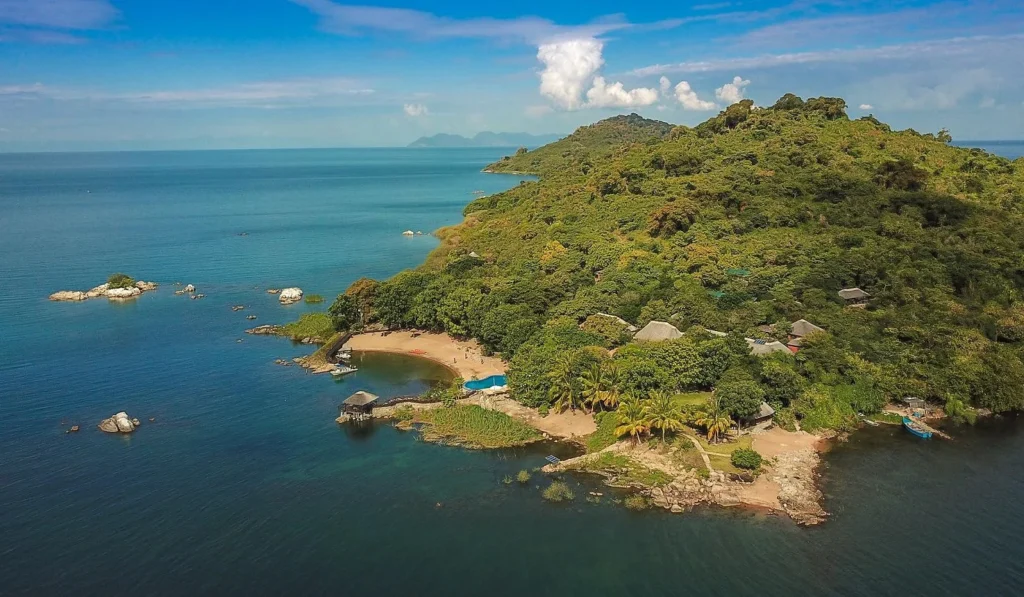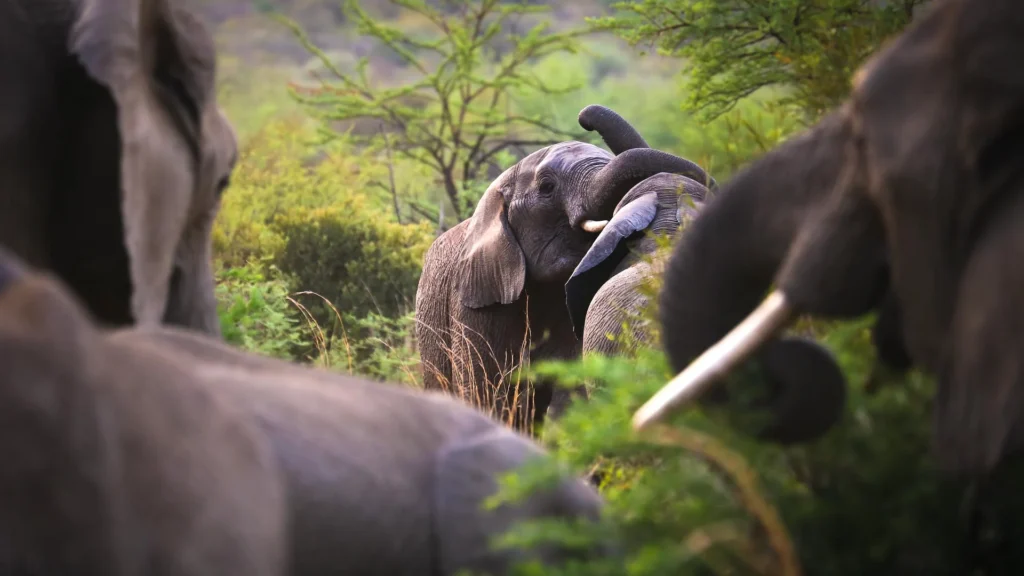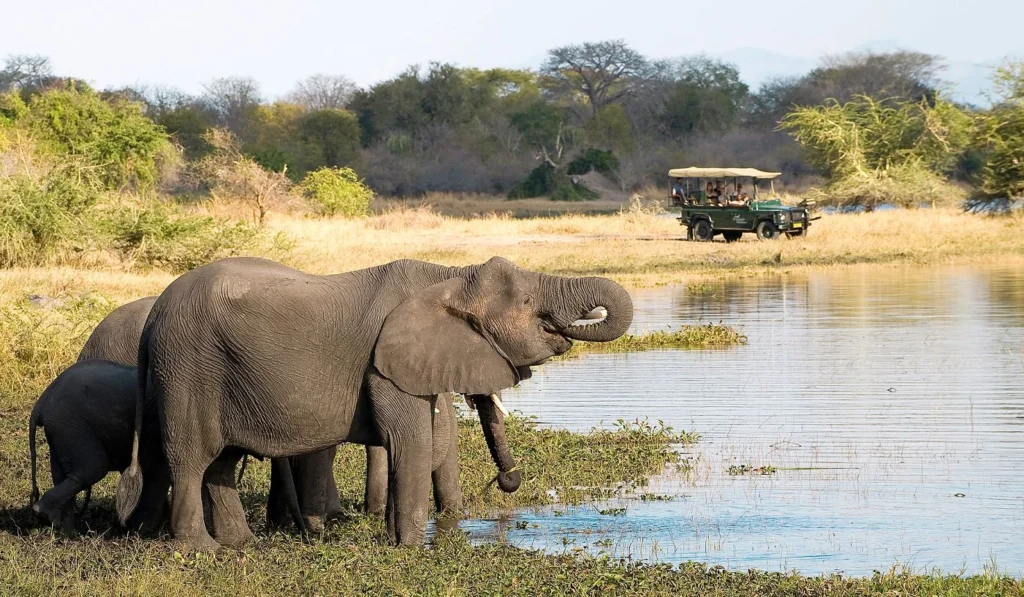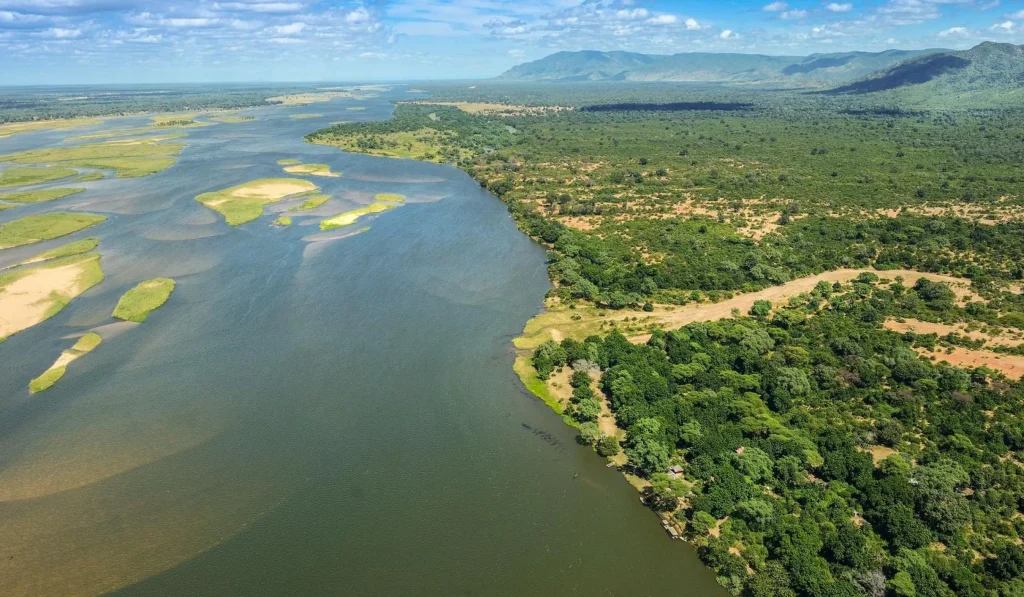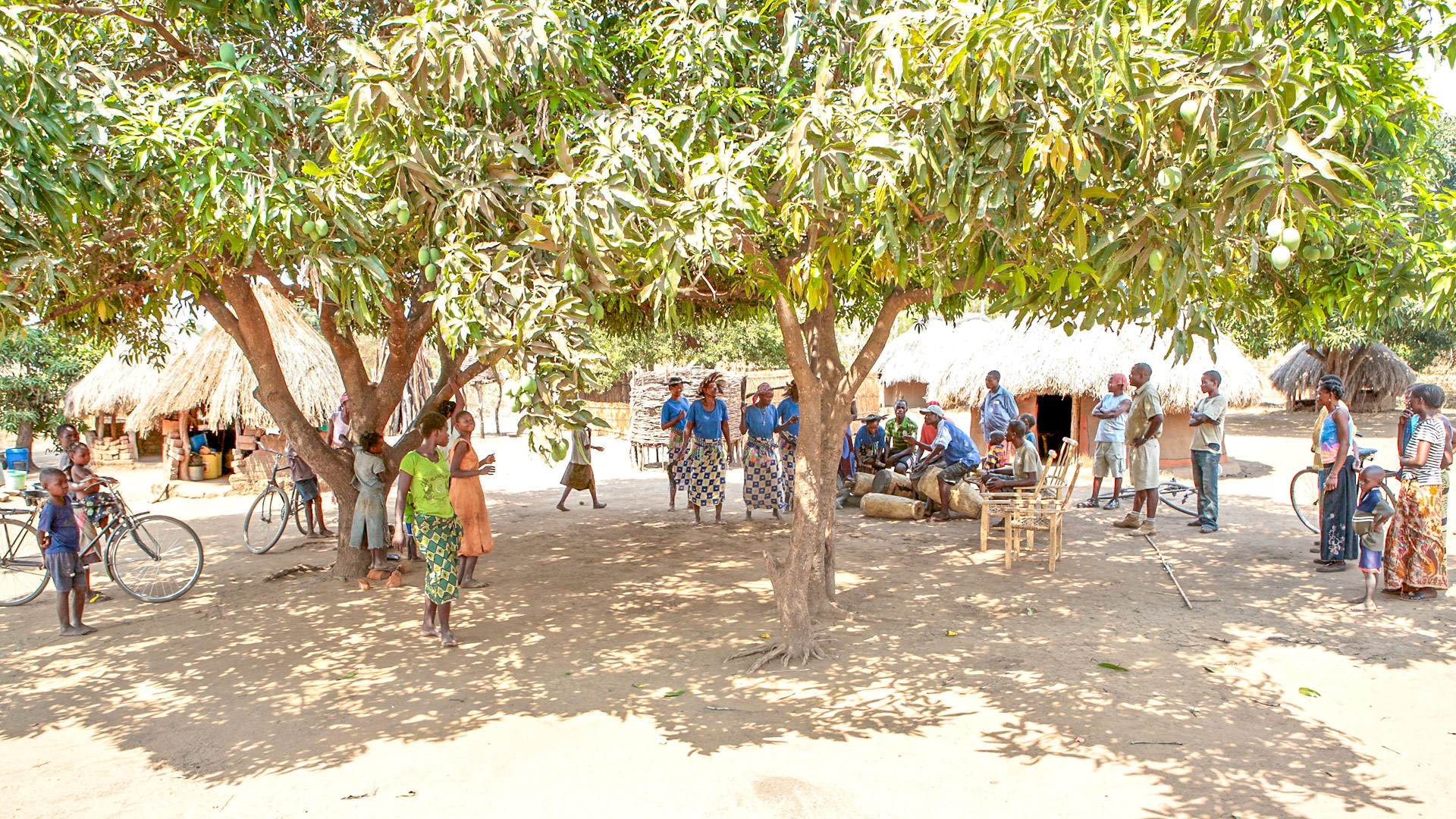
Kawaza Village
Kawaza Village
is a cool community project
in the South Luangwa area
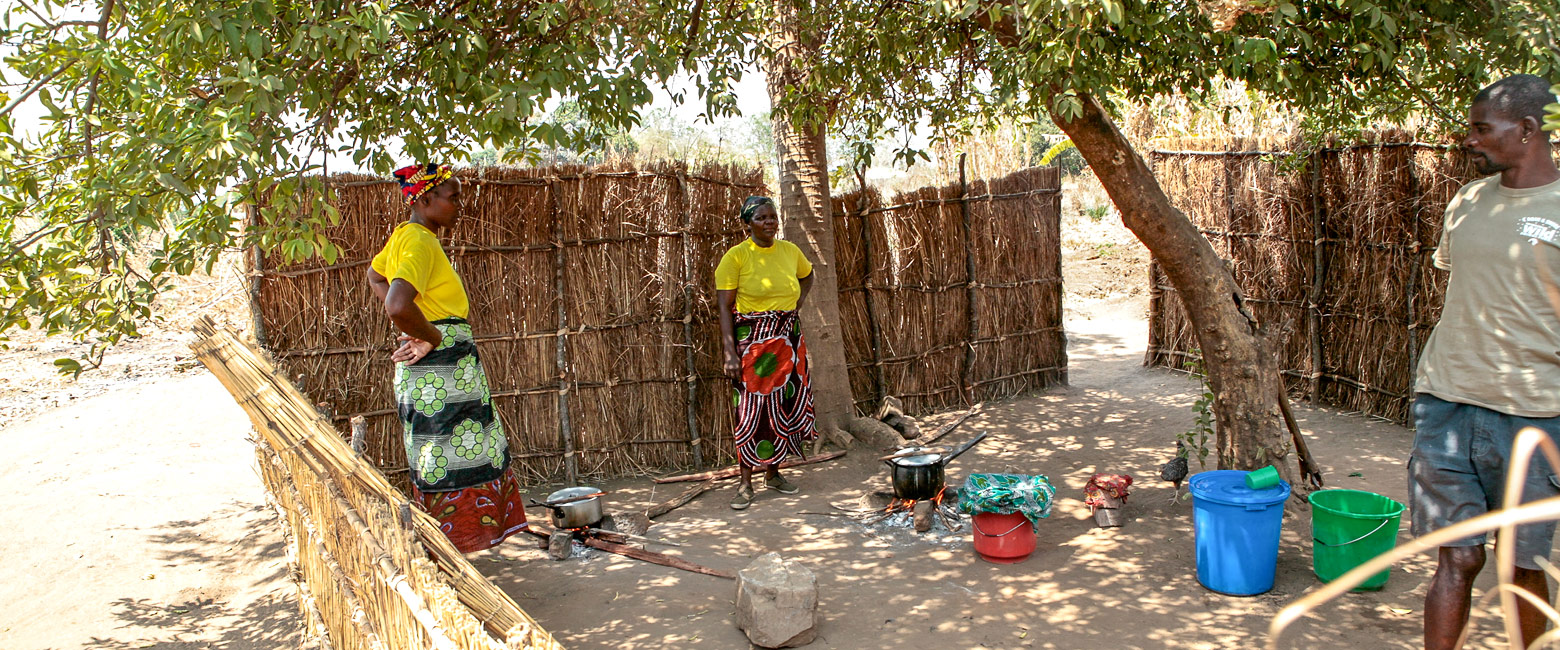
a wonderfully immersive cultural experience
Kawaza Village is located in the South Luangwa Central area of eastern Zambia.
The Luangwa Valley is the home of the Kunda tribe who migrated from the Luba area in Congo in the first half of the 19th century. Numbering around 35,000 people, the Kundas were traditionally hunters, but today the majority live the challenging lives of subsistence farmers.
A remarkable award-winning project, Kawaza is a completely authentic African village where guests are invited to stay as honoured guests and participate in local life.
Since 1989 Robin Pope Safaris, whose base at Nkwali Camp is close by, has supported education of the children in the Nsefu Village area starting with Kawaza School itself, which is around 8 km east of the main Mfuwe Bridge Gate into the national park.
The project has since grown to support two government schools and two community schools, with many thousands of pupils between them. It has had an enormous impact on education and prospects in the valley. This project has earned a reputation in Zambia of being a great example of how tourism can contribute directly to a community.
For a number of years guests of Robin Pope Safaris paid brief visits to the schools and villages. But one day a guest suggested that it might be nice to actually stay longer. So the concept of Kawaza Village was developed and now the community runs a tourism project where guests can spend a morning, day, night or even a whole week with them, creating an unusually authentic and involving cultural experience.
The villagers offer a very warm welcome and are delighted to show the guests their way of life, to exchange ideas and thoughts. The village is not a set up, but the home of a family who have opened their doors to outsiders. It is run by the wider community, which employs cooks, guides, dancers, drummers and more, up to 20 people in total.
The Kawaza Village Project is now managed by a larger umbrella organisation, Project Luangwa, together with a committee of villagers. The income not only supports the village but also helps to run the school.
Kawaza Village is the winner of the prestigious Silver Otter Award 2000, given for the “Best Overseas Tourism Project” by the British Guild of Travel Writers and the “Best Family Cultural Experience” by The Times newspaper in London in July 2010
The experience
Activities include visiting the chief, the church and the clinic, enjoying a traditional feast with dancing and storytelling in the company of hundreds of excited villagers and to sleep in a traditional village hut.
Upon arrival guests are met by one of the leaders of the project, most notably a very nice fellow called Constantino, who is the manager of the project. He will introduce you to the project, the place and some of the villagers, before chatting with you about which of the various activities you might like to do during your stay.
But first he will show you to your accommodation, where most guests will spend just one night, but some stay a week or longer.
Each guest or couple sleeps in one of a number of traditional mud and thatched huts arranged to one side of the village. There are no windows, no electricity and no furniture other than a mattress on a reedwork mat with clean but potentially threadbare bedding and a mosquito net. Washing facilities are provided in an open reedwork boma nearby with hot water for washing being provided in a bucket on request, along with soap and towels. The toilet is a basic “thunderbox” over a hole in a thatched hut. This toilet may seem rudimentary, but actually it is a rare concession to modern comforts as the locals do not use sit-downs at all.
The best way to get started is usually to simply be guided around the village, be introduced to some of the locals and even take part in some of the day to day chores such as drawing water from the well, carrying buckets on your head, hoeing the fields, grinding maize, brewing local beer or whatever else the villagers will be planning for the day.
You may like to spend time with a traditional healer, or go for a walk in the surrounding bush to learn about the traditional uses of the various different trees and plants.
Alternatively you can visit the Senior Kunda Chief in his ‘palace’, visit local institutions such as the local churches, women’s groups or clinics.
One of the most popular options is to visit Kawaza School, where the lovely headmaster Felix Maunga will show you around. They have around 1000 kids at the school now, who will switch from being shy and cowering to being excited, smiling and singing at the slightest encouragement. You may even like to take charge of a classroom for a while, the children are honoured to have such a prestigious guest teacher, but be sure your long division is up to scratch.
In the evening a meal is prepared by local ladies, something simple but tasty, such as chicken curry with maize-meal, spinach and peanuts. This is served in a traditional open-sided ‘nsaka’ building in the middle of the village, in the company of your guide and probably with the village children looking on. Guests sit on reedwork matting on the floor, eating by hand in the traditional way, with a basin and soap provided for washing before and after. You can drink water from the borehole, or ask for bottled water to be provided beforehand if you prefer. You might also want to bring a few extra snacks along to keep in your room just in case.
After dark the drums start and people flock in from the surrounding villages to check out what is happening. The village choir and dance troupe provide traditional entertainment around a roaring campfire, to the delight of a sea of smiling faces. During pauses in the music, the finest story tellers will entrance people with their dramatic Kunda stories. After an hour or two the drums stop and everyone drifts away to bed.
In the morning you are woken by the sound of cocks crowing and the gentle murmuring of the village ladies going about their early chores. You may want to get up and sweep the dirt area around your hut, get yourself ready for another sunny day.
Travelling with children
Kawaza is a truly extraordinary experience which is especially good for children of all ages.
It is hard to overstate how good this experience can be for your children, it can give them a real sense of perspective in their lives. Younger children tend to fit in the quickest, it only takes the sight of a football to get most of them running around with the local kids. But it is older children, teenagers who are likely to benefit the most. There is so much to learn in this environment, lessons that will stick with them through life and hopefully make them better and more rounded individuals.
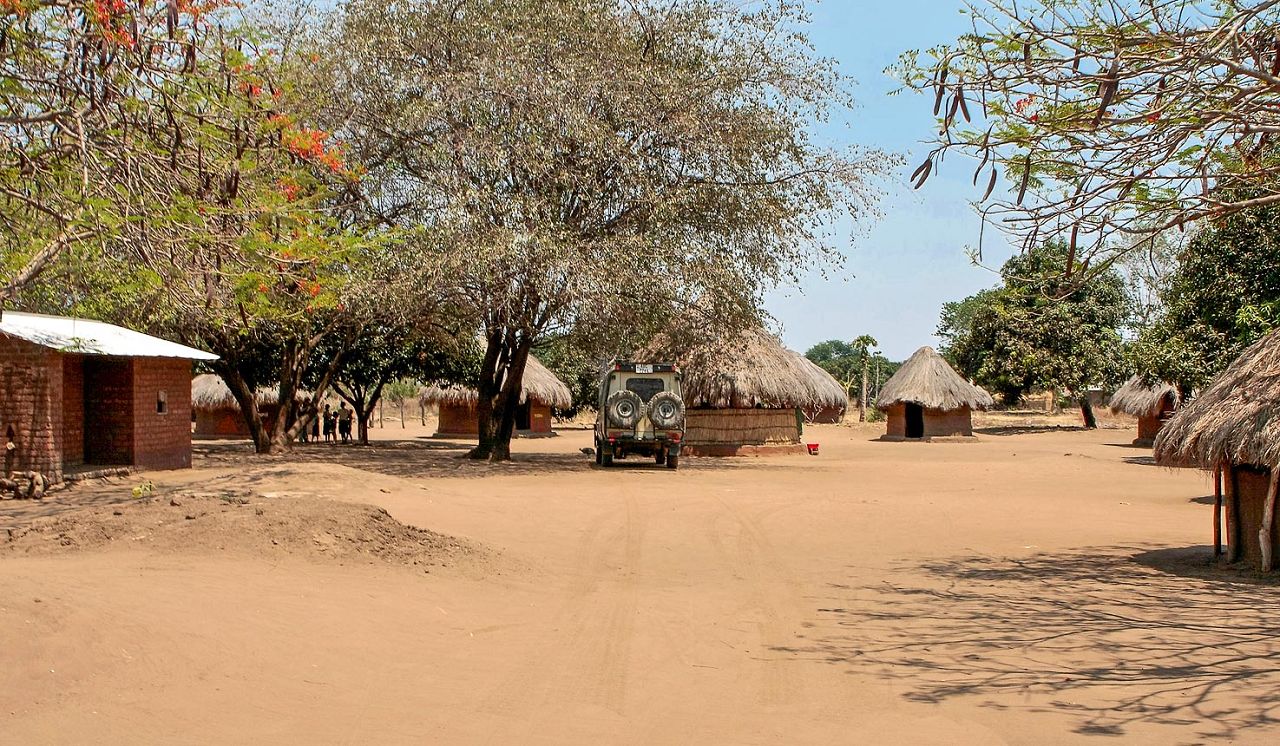
Gallery
Map
South Luangwa is a very high quality safari area that often serves as the primary location in a trip.
The stay duration tends to be 5-8 nights split between two camps, or more occasionally 3-5 nights at one camp. Three camp combinations are also possible.
Seasonality
The best time to visit South Luangwa is during the May-Oct dry season, when the wildlife is focused on the riverine areas and easy to find.
Within that period, May-Jul is pleasantly cool at night, but the animals may not yet be fully migrated back into the river.
Towards the end of that period, Oct-Nov the wildlife should be at its strongest, but the weather is likely to be uncomfortably hot, especially at night. Bear in mind that most camps do not have air-conditioning.
Getting around
South Luangwa lies to the east of the country and is usually accessed by light aircraft services from Lusaka or Livingstone.
From Mfuwe Airport it is 45 minutes by road into camp.
usually combined with at least one local safari camp
let us know your thoughts about Zambia
and we will help you create the perfect safari
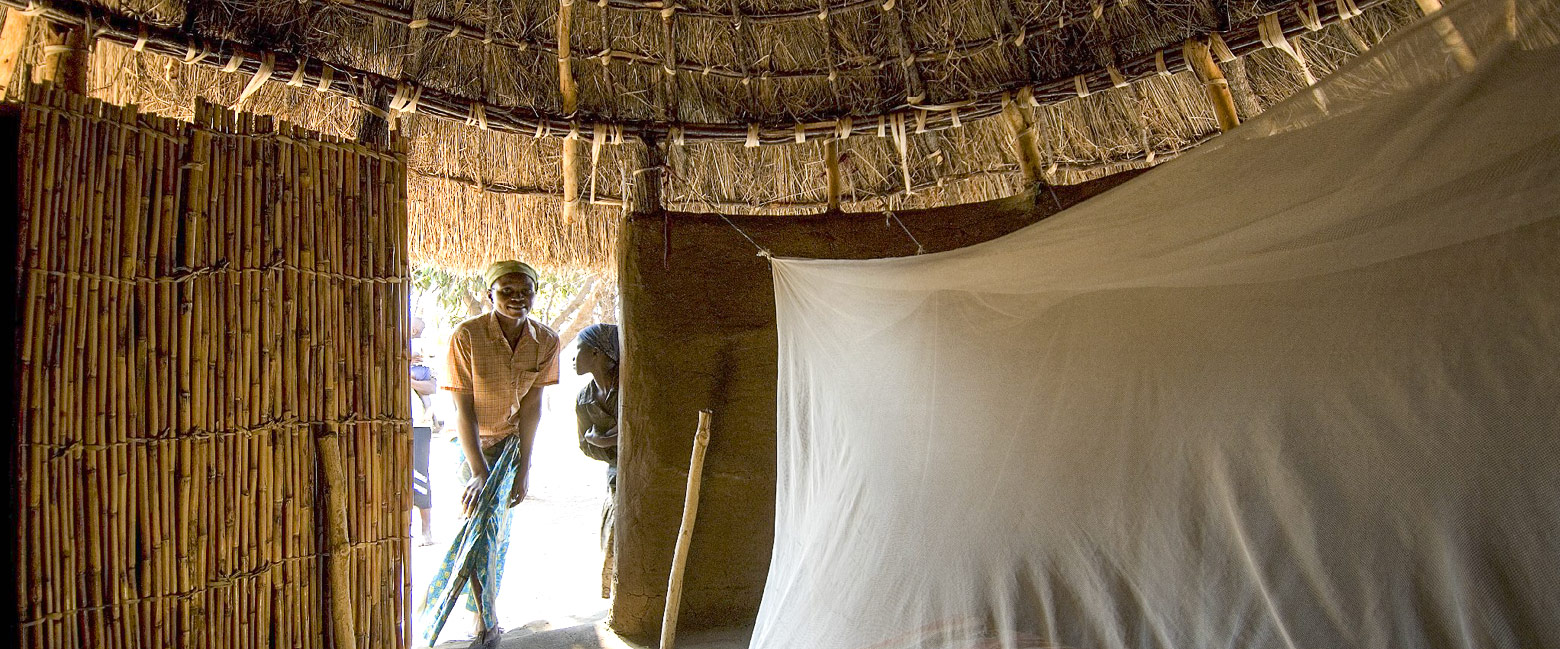
Extraordinary tailor-made adventures,
from earthy and edgy to easy and extravagant
From around USD 2500 per person, you set the ceiling
Sample Trips
Here are some of our popular trip shapes
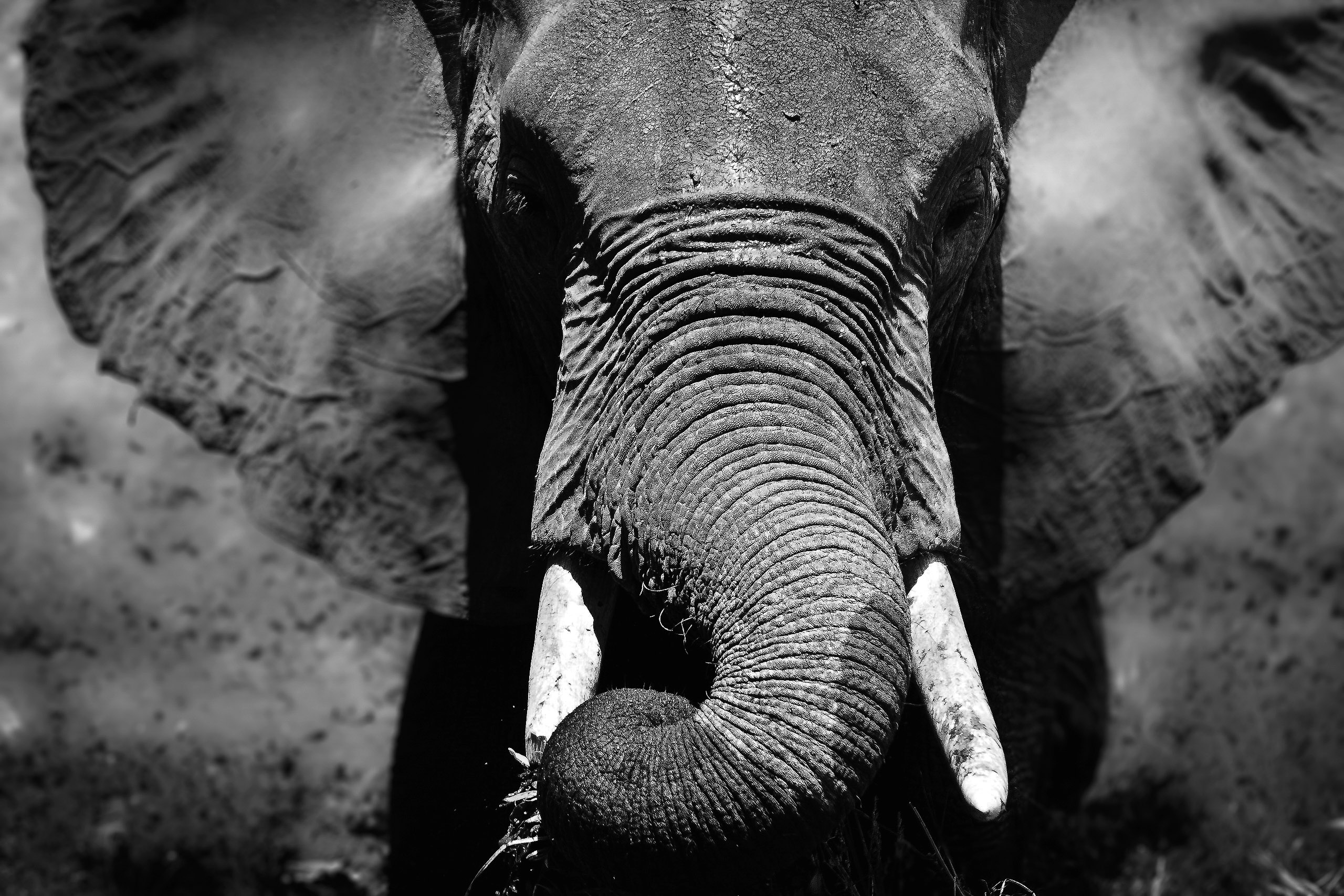
Get started on your trip
It’s never too soon to get in touch, we are here to help with every stage of your planning.
Best Lodges
We regularly inspect and photograph all of the the best lodges, to ensure that we always recommend the most suitable options
Key Locations
Take a look around related locations. Click ‘View more’ to explore locations further afield.































